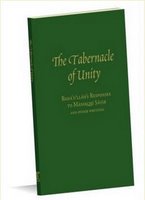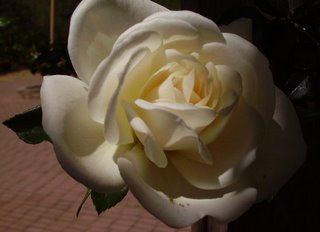Verily I say, this is the Day in which mankind can behold the Face, and hear the Voice, of the Promised One. The Call of God hath been raised, and the light of His countenance hath been lifted up upon men. It behoveth every man to blot out the trace of every idle word from the tablet of his heart, and to gaze, with an open and unbiased mind, on the signs of His Revelation, the proofs of His Mission, and the tokens of His glory.
Great indeed is this Day! The allusions made to it in all the sacred Scriptures as the Day of God attest its greatness. The soul of every Prophet of God, of every Divine Messenger, hath thirsted for this wondrous Day. All the divers kindreds of the earth have, likewise, yearned to attain it.
Bahá’u’lláh, Gleanings from the Writings of Bahá’u’lláh, p. 10
Prove all things; hold fast that which is good.
King James Bible, 1 Thessalonians 5:21
Beware of false prophets, which come to you in sheep's clothing, but inwardly they are ravening wolves. Ye shall know them by their fruits. Do men gather grapes of thorns, or figs of thistles? Even so every good tree bringeth forth good fruit; but a corrupt tree bringeth forth evil fruit. A good tree cannot bring forth evil fruit, neither can a corrupt tree bring forth good fruit. Every tree that bringeth not forth good fruit is hewn down, and cast into the fire. Wherefore by their fruits ye shall know them.
King James Bible, Matthew 7:15-20
But the fruit of the Spirit is love, joy, peace, longsuffering,
gentleness, goodness, faith, meekness, temperance.
King James Bible, Galatians 5
For the fruit of the Spirit is in all goodness and righteousness and truth
King James Bible, Ephesians 5:8
....is it not thy clear duty to investigate this Cause, to inform thyself of the things that have befallen Us, to judge with equity, and to cleave unto justice?
Bahá’u’lláh, The Summons of the Lord of Hosts, p. 192
The first principle Bahá'u'lláh urged was the independent investigation of truth. "Each individual," he said, "is following the faith of his ancestors who themselves are lost in the maze of tradition. Reality is steeped in dogmas and doctrines. If each investigate for himself, he will find that Reality is one; does not admit of multiplicity; is not divisible. All will find the same foundation and all will be at peace.
Bahá’í Scriptures, p. 276
The first teaching of Bahá'u'lláh is the duty incumbent upon all to investigate reality. What does it mean to investigate reality? It means that man must forget all hearsay and examine truth himself, for he does not know whether statements he hears are in accordance with reality or not. Wherever he finds truth or reality, he must hold to it, forsaking, discarding all else; for outside of reality there is naught but superstition and imagination.
Abdu'l-Bahá, The Promulgation of Universal Peace, p. 62
....it is our duty in this radiant century to investigate the essentials of divine religion, seek the realities underlying the oneness of the world of humanity and discover the source of fellowship and agreement which will unite mankind in the heavenly bond of love.
Abdu'l-Bahá, The Promulgation of Universal Peace, p. 144
Ponder a while. What is it that prompted, in every Dispensation, the peoples of the earth to shun the Manifestation of the All-Merciful? What could have impelled them to turn away from Him and to challenge His authority? Were men to meditate on these words which have flowed from the Pen of the Divine Ordainer, they would, one and all, hasten to embrace the truth of this God-given, and ever-enduring Revelation, and would testify to that which He Himself hath solemnly affirmed.
Bahá’u’lláh, Gleanings from the Writings of Bahá’u’lláh, p. 82
O ye that have strayed and lost your way! The Divine Messenger, Who speaketh naught but the truth, hath announced unto you the coming of the Best-Beloved. Behold, He is now come. Wherefore are ye downcast and dejected? Why remain despondent when the Pure and Hidden One hath appeared unveiled amongst you? He Who is both the Beginning and the End, He Who is both Stillness and Motion, is now manifest before your eyes.
Bahá’u’lláh, Gleanings from the Writings of Bahá’u’lláh, p. 168
Prove all things; hold fast that which is good.




